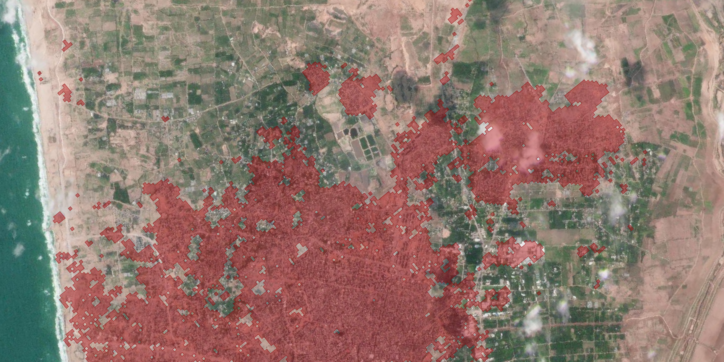The conceptual heart of Pope Francis’ groundbreaking environmental manifesto, Laudato Si’, is his idea of integral ecology (§139):
We are faced not with two separate crises, one environmental and the other social, but rather with one complex crisis which is both social and environmental.
Environmentalism can never be reduced to some idea of “nature” but it is always demands a concern with our human neighbours – as well as all the other creatures who share Creation with us. An outworking of this groundbreaking principle drives us to focus our attention on active transport – giving kids the infrastructure they need to safely walk or cycle to school is not somewhere down the list of concerns that environmentalists care about. Environmentalism is another word for seeking peaceful and just societies and from a Christian perspective, the fastest way to work in that direction is to build societies hospitable to babies and children, the elderly and those who are disabled. The society that is safe for the vulnerable will be safe for everyone.
Thinking through the lens of integral ecology, it is easy to understand how environmentalists must oppose all war. War is fundamentally about destroying environments, which is the opposite of the vocation human beings have been given to cultivate the world we find ourselves in.
In the on-going war[1] in Gaza, Israel and her allies have produced well over a quarter of a million tonnes of CO2 equivalent emissions – indeed those numbers were calculated based on just the first 60 days of conflict. The war is roughly speaking adding a New Zealand-sized load to our emissions. This alone is reason – in the midst of an unfolding climate catastrophe – to join the global Society of Jesus in their consistent calls for an immediate cessation of the onslaught.
But when we remember that the war has damaged hundreds of thousands of buildings, mostly made out of concrete, we get a better sense of the devastation being wrought. As recent studies have shown, the scale of Israeli destruction in response to the horrendous events of October 7th has been truly catastrophic.
If somehow, peace is secured, and Palestine is rebuilt, then the cost of undoing this devastation will not just be material, it well be environmental too. And if the war continues until there is no meaningful trace of what came before, it appears property development is already planned, which will bring its own intensifying climate consequences.
But the most fundamental environmental consequence of war is not climactic, but creaturely. The lions in Gaza zoo are starving and soon the children still left will be too. The use of flooding sea water to drown tunnels is going to have a long afterlife. And in final calculation, the death of every single victim, starting with October 7th and stretching to today, devastates a human environment. There is no strategic aim that warrants the scale of existential bereftness that must come upon a parent whose child has been taken from them.
It is almost 60 years since Pope Paul VI stood before the United Nations and pled “never again war, never again war! It is peace, peace, that has to guide the destiny of the nations of all humankind!” His call goes unheeded but with every passing year it becomes more and more clear that our environmentalism must be robust enough to oppose such armed conflict, on fundamentally humanistic grounds.
War is an environmental issue.
[1] Of course, in the long tradition of thinking about “just war” in Christian theology, war itself names a particularly strict kind of martial engagement. What is happening right now certainly fails the Just War criteria, but it arguably doesn’t even qualify as war, and “slaughter” might be a more appropriate description.


